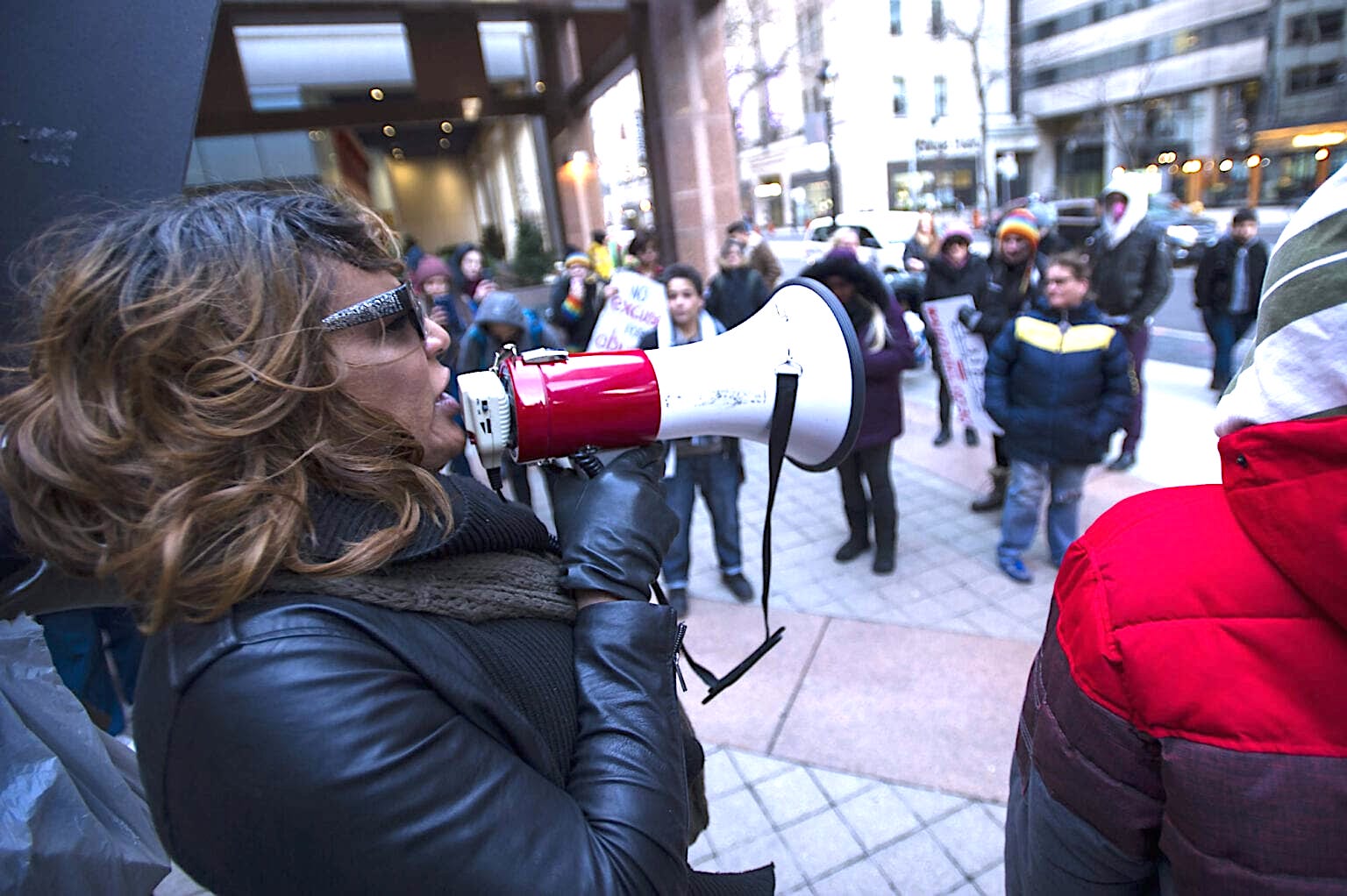Wherever she goes—from rallies to boardrooms—Monica Forrester has been a consistent advocate for racialized and LGBTQ2S+ people, sex workers and other marginalized communities in Toronto for decades.
Now, she’s running for mayor.
With advance polls set to open on June 8, Forrester is one of over 100 candidates who have entered the race to replace John Tory in the city’s top job.
She says she entered the race to amplify “what needs to be done in this city to support people,” and force other candidates to account for how their policy positions will impact all Torontonians, including the most marginalized.
“We have six top mayoral candidates that have been in politics and on councils, and I just felt—they’ve been in these roles for years,” Forrester tells Xtra. “And with the things that are going on in our city, it was frustrating me. How are they now going to make a better city, and address those things?
“A lot of our politicians that are running, they live privileged lives. They all go home to their homes. They probably all drive, so they never take the TTC. They’re not confronted by some of these ongoing issues that we see. They’re probably feeling it, as politicians, but they’re not really experiencing it.”
Forrester, a Two-Spirit trans woman, is the founder of Trans Pride Toronto and now works at Street Health Toronto, a non-profit focused on improving the health and well-being of homeless and under-housed people. She has also worked with organizations focused on mental health, housing, addictions, sex worker advocacy and mentorship.
She also sits on “a wealth of different committees,” working on neighbourhood safety, policing and crisis response in the city. She is used to being what she calls “the elephant in the room,” saying, “when it comes to holding people to the things they’re saying.” She feels she brings perspective, knowledge and experience that is too often missing when key decisions are being made.
“I really have a lot of knowledge and can bring a voice to what is needed,” says Forrester. “And I’m not trying to downplay politicians. I think their hearts are where they want to be.
“But I don’t think they have the experience or the knowledge to really recognize the importance of these issues, or why we need these things done. So they can all talk about it, but who’s going to make sure that they’re going to do 100 percent to make sure that these plans actually happen?
“There are so many things I’ve learned from my own experiences, and I can help implement those things and make sure they happen.”
Mary Kay MacVicar, who also works at Street Health, was excited when Forrester announced her mayoral bid.
“I think it’s fantastic that she’s running, for a number of reasons,” says MacVicar. “Regardless of the outcome of the election, she’s in a position to really provide some education. I was watching one of the debates the other night, and some of her ideas were being spoken about.”
The May 31 debate featured Ana Bailão, Brad Bradford, Olivia Chow, Mitzie Hunter, Josh Matlow and Mark Saunders discussing affordability and homelessness, among other issues.
“So, I think [Forrester] is influencing how people are understanding some of the systemic issues that our marginalized communities face,” said MacVicar. “And that’s a phenomenal achievement.”
MacVicar says Forrester has “remarkable kindness and fairness and compassion,” and that her deep connections to communities throughout Toronto are badly needed in the mayor’s office.
Throughout her campaign, Forrester has focused on healthcare, housing and infrastructure.
She says the COVID-19 pandemic exacerbated pre-existing crises in these areas. Now that support programs tied to the pandemic are disappearing, the problems are only getting worse.
“These things resonate with a lot of people—people that are not homeless, and people that are,” she says. “Our public spaces have a lot more people living in them. And I can totally understand how people are frustrated, but I think it’s more of a frustration that the mayor has not taken the initiative to really address homelessness and work around building more affordable or even short-term housing.
“We are one of the richest cities in the country. There is no reason why homelessness should be at an all-time high. There is no reason we can’t be supporting our community healthcare, and making sure our infrastructure and our [transit system] is top-notch.”
Forrester says the conversations she has been having with Torontonians during the campaign have shown her that her presence is needed in this race, to stand up for people and communities who feel unrepresented in city politics.
“When we look at some marginalized and racialized communities, those are the people that aren’t voting, because they feel like, ‘Well, my voice isn’t going to be heard anyway,’” says Forrester. “So, I’m getting out there and making sure they understand that their voices matter, and that there’s someone that’s really going to go to bat for them.”
Whether or not she wins, Forrester will continue advocating for marginalized communities in Toronto.
But if she does become mayor, she says, “It would really change the landscape.”
“As someone that’s trans, and a woman of colour, who has experienced many of the things that are happening in our city—if I won, it would say that our voices matter, and that people with lived experience are trusted to actually make change.”


 Why you can trust Xtra
Why you can trust Xtra


